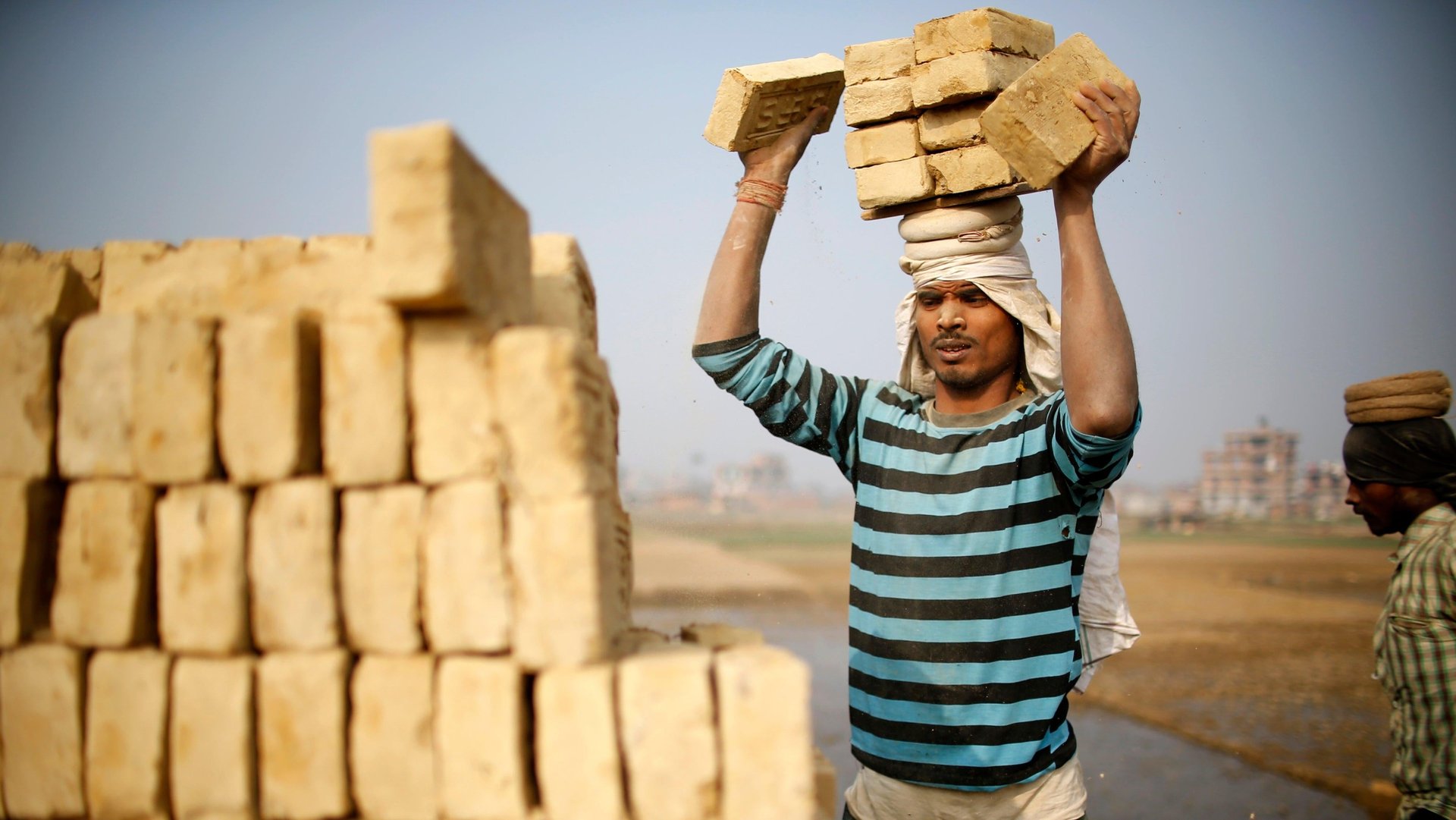India's daily-wage earners and home-makers are the most prone to dying by suicide
The economic slide caused by the covid-19 pandemic was a key reason.

One in four Indians to kill themselves in 2021 were daily-wage earners.
Around 25% of the 1,64,033 cases of suicide recorded that year involved daily-wage labourers, according to India’s (pdf) National Crime Records Bureau (NCRB).
The share of the economically vulnerable group in the overall number of suicide cases has been increasing steadily since 2014, an NCRB report has said.
Women continue to remain the vulnerable group
The other single largest vulnerable group (14.1%) was homemakers, overwhelmingly women.
Most were caused by marriage-related issues such as dowry, extramarital affairs, and divorce, besides several illnesses.
However, a key reason, domestic violence, is not mentioned in the NCRB data, mental health experts say. Up to 30% of married Indian women have faced spousal violence, government data show.
The self-employed saw the highest increase in suicide in 2021, up 17% to 20,231 from the previous year. This likely reflects the magnitude of losses in businesses due to the pandemic.
It must be noted that up to 14.4% of the total cases in 2021 involved “other persons,” referring to those who aren’t included in any mentioned categories.
Maharashtra, one of India’s most industrialised and business-friendly states, recorded the most cases of suicide at 22,207 in 2021. Tamil Nadu (18,925), Madhya Pradesh (14,956), West Bengal (13,500), and Karnataka (13,056) followed. Among union territories, Delhi topped with 2,840 cases.
Less demand for labour during covid-19 may be a reason
The 2020 lockdown slammed the brakes on India’s economy.
India’s covid lockdown in 2020 sparked a major economic crisis, particularly for those at the lower end of the pyramid. Reverse migration from cities to villages saw millions of poor people even walk hundreds of kilometres. Drastic measures to curb the spread of the virus shrunk real wages to record lows and fueled joblessness, experts said.
“The slowdown...led to employment shrinking, while labour supply increased. This has put huge pressure on the daily wage market, which is not being able to absorb the labour and for those who get jobs, the wages are being pushed down,” Anamitra Roychowdhury, an assistant professor with the Jawaharlal Nehru University’s labour studies department, had said back then.
If you or someone you know is in crisis, in the US you can call the National Suicide Prevention Lifeline, 24/7, for confidential support at 1-800-273-8255. For hotlines in other countries, click here.
